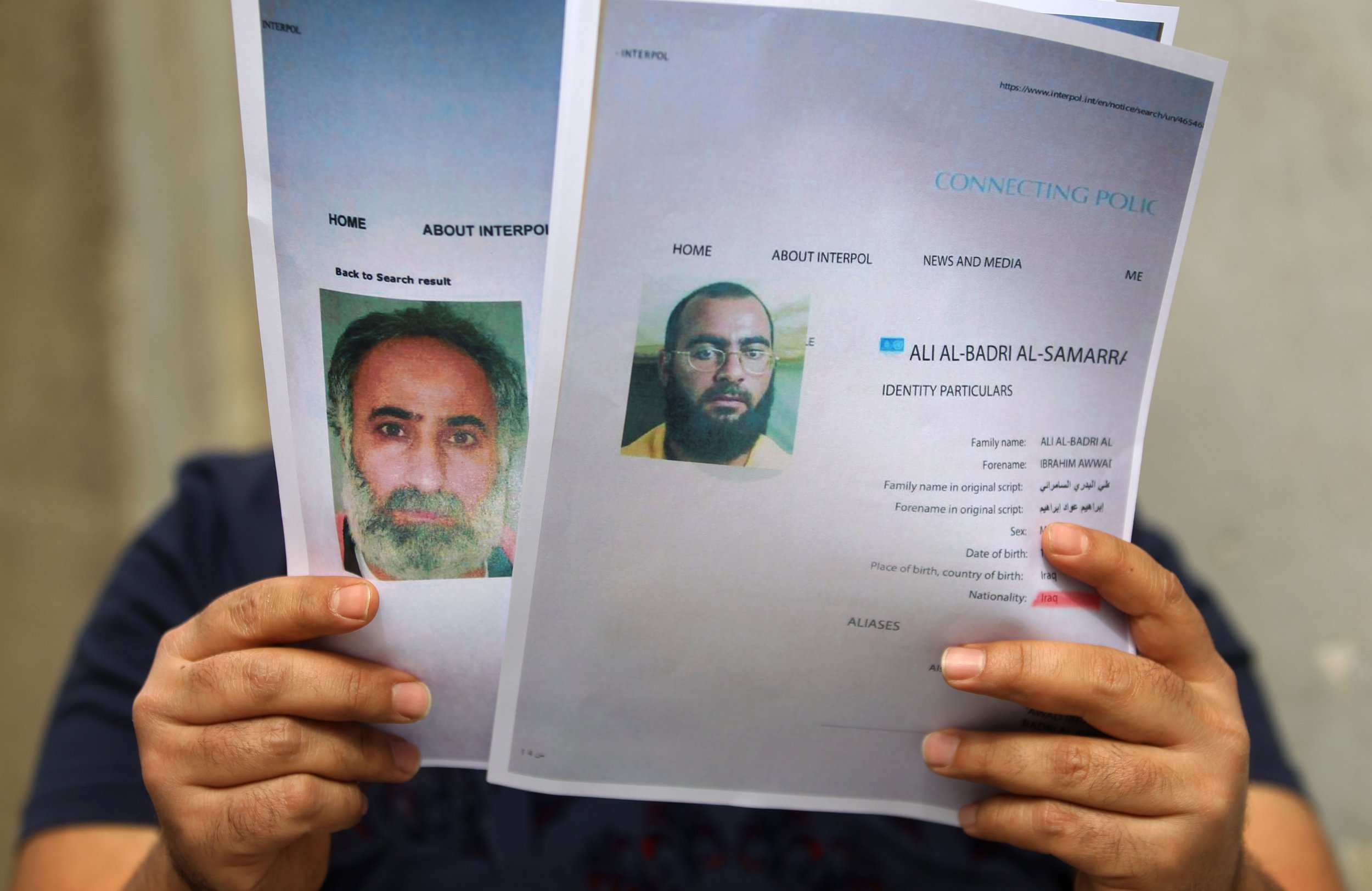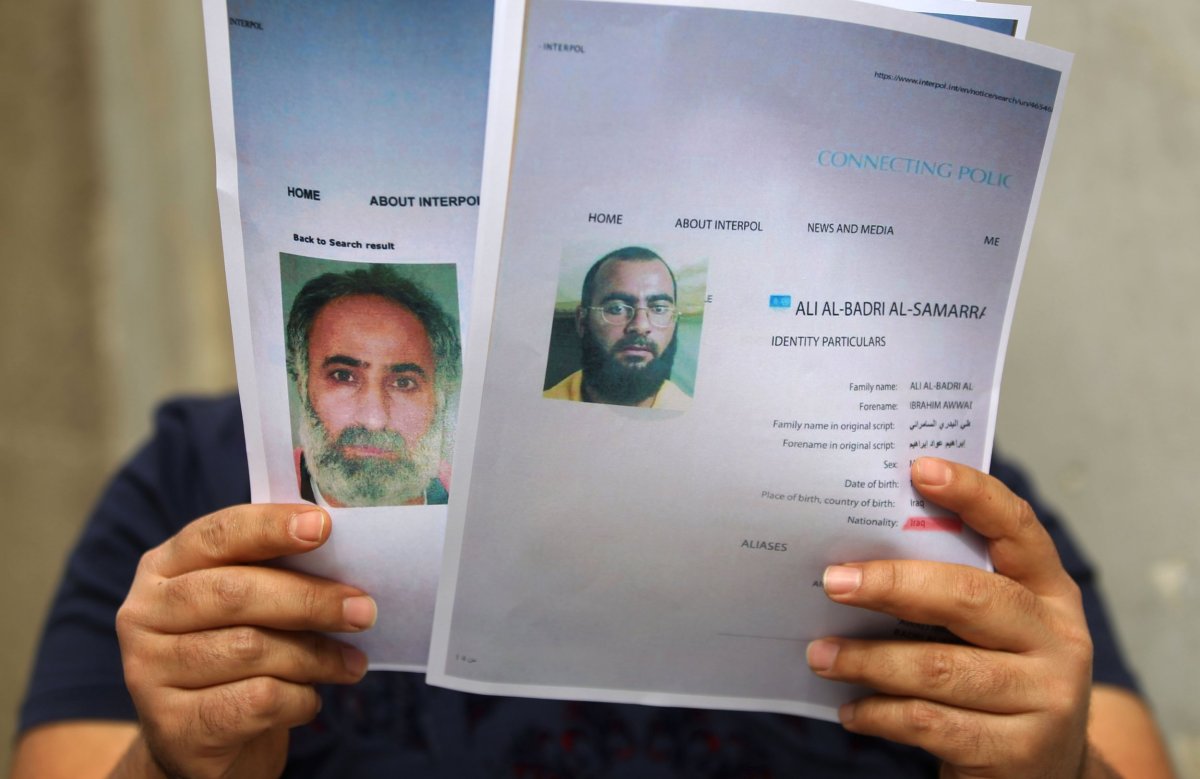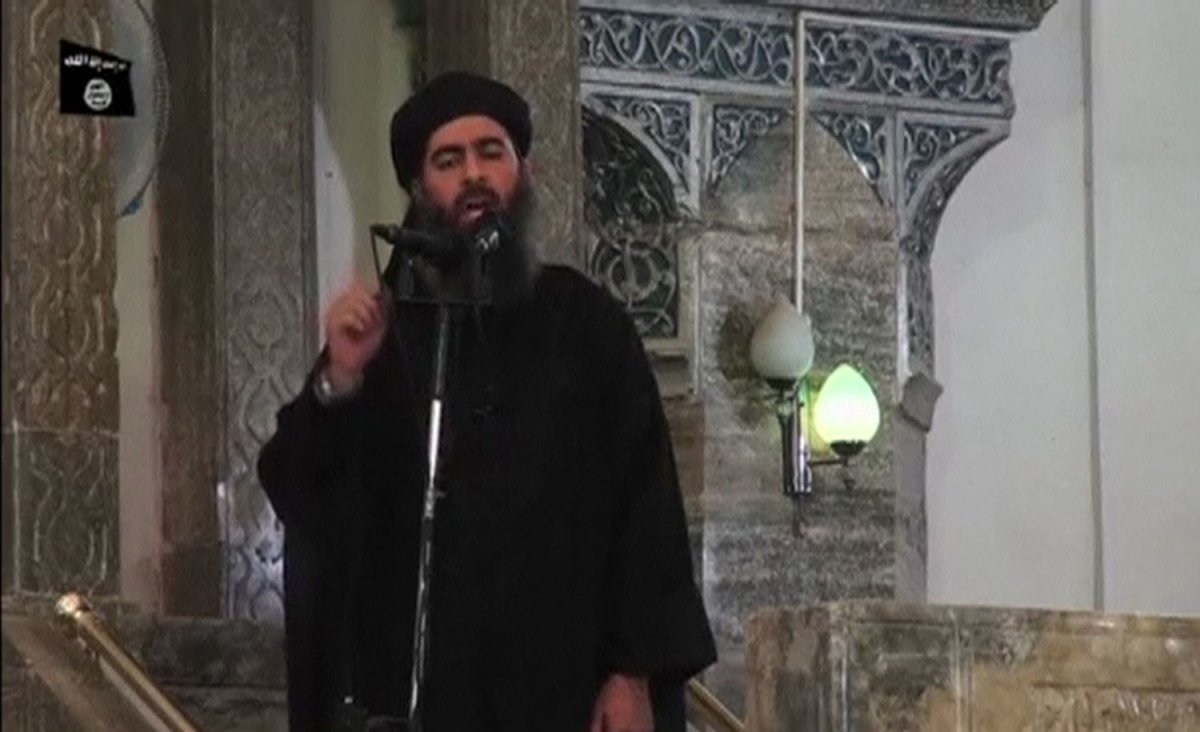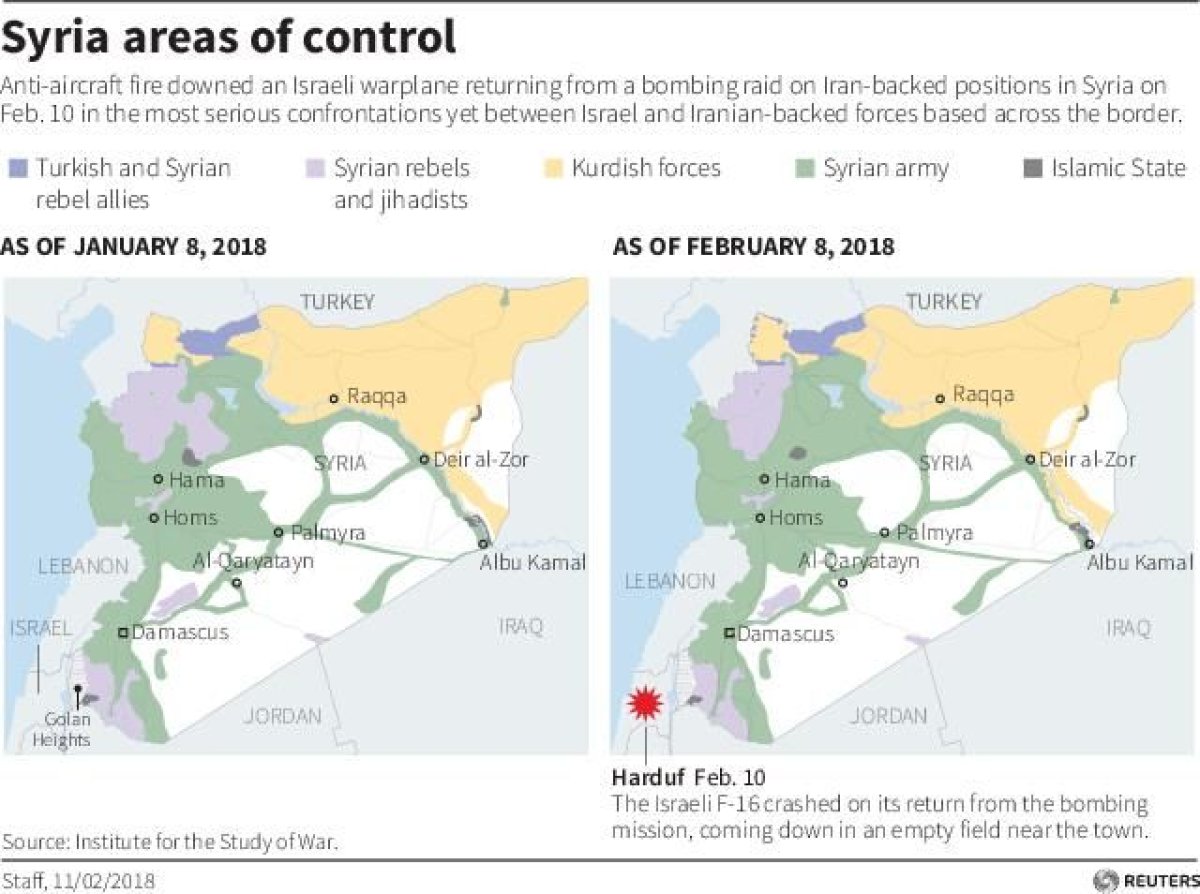
The elusive head of the Islamic State militant group (ISIS) has survived an airstrike and is believed to be hiding out in a shrinking bastion of jihadi control in a mostly desert stretch of eastern Syria known as Al-Jazeera, or "the Island," according to U.S. and Iraqi officials.
Abu Bakr al-Baghdadi, the hard-line Sunni Muslim cleric who expanded his Al-Qaeda offshoot from Iraq across Syria, has made only one known public appearance. As his group suffered widespread losses in recent years, unconfirmed reports of his whereabouts and fate have been numerous. In the latest potential development, a senior Iraqi official said Monday that one of the world's most wanted men is incapacitated and clinging to life after air raids in Iraq, forcing him to give up the helm of his militant network that claimed followers and supporters across the globe.
Related: Iran says U.S. "even worse" than ISIS after bombing supreme leader's allies in Syria
"We have irrefutable information and documents from our sources infiltrating the terrorist entity, stating that the criminal Baghdadi is still present today with the help of his collaborators in the Syrian region of Al-Jazeera," Abu Ali al-Basri, director of intelligence and counterterrorism at the Iraqi Interior Ministry and head of the elite Falcons Intelligence Cell, told state-run newspaper Al-Sabah.
Basri said Baghdadi has been forced to cede control of the group due to his severe "physical and psychological deterioration." Basri also said the jihadi leader was likely suffering from diabetes.

Unnamed U.S. officials cited by CNN said Monday that Baghdadi was injured by an airstrike that left him unable to lead ISIS. However, they said the attack had occurred near what was once ISIS's de facto capital of Raqqa, northern Syria, sometime in May, and had likely been conducted by a U.S.-led coalition or Russian air power. While one official accused Moscow of "making stuff up," according to CNN, the timeline coincided with earlier claims made by Russia.
In June, the Russian Defense Ministry first announced that it had received information about Baghdadi's potential demise after Russian warplanes bombarded ISIS positions in the province of Raqqa on May 28. As the investigation continued, Russia said it was increasingly convinced that it had killed the jihadi warlord, but the U.S. said it could not verify if or how Baghdadi died. Ali Shirazi, a member of the elite expeditionary Quds Force of Iran's Islamic Revolutionary Guard Corps, said in June that "terrorist Baghdadi is definitely dead."
Two pro-Syrian opposition monitoring groups, the U.K.-based Syrian Observatory for Human Rights and Syria-based Raqqa is Being Slaughtered Silently, also weighed in last summer. SOHR told Newsweek in July that Baghdadi had in fact been killed, but that he died under unknown circumstances in the eastern, then-ISIS-held city of Deir Ezzor. RIBSS tweeted that same day that rumors of Baghdadi's death were "not true."
ISIS maintained silence about Baghdadi until it released an audio tape in September purported to be a recent recording of the militants' leader-at-large. In the roughly 45-minute recording, a man identified as Baghdadi discussed his group's loss of territory to local forces backed by international campaigns, staging attacks against civilians in the so-called "crusader" countries abroad and the nuclear threat posed by North Korea.

Baghdadi was born Ibrahim Awad Ibrahim al-Badri, reportedly in Samarra, Iraq. He became active in Islamist militant circles after the U.S. invasion and occupation of Iraq in 2003. The following year, he was arrested by U.S. forces and detained at Abu Ghraib and Camp Bucca, two detention centers that have since become notorious for having fostered radicalism among the members of Iraq's already disaffected Sunni Muslim minority that were held there after the overthrow of Iraqi President Saddam Hussein.
After his release, Baghdadi went on to join Al-Qaeda in Iraq, which became the Islamic State of Iraq in 2006, and ascended to its leadership after the death of his predecessor in 2010. The group launched a wave of bloody, sectarian violence against Shiite Muslims, as well as regular attacks on U.S. forces. In 2013, Baghdadi renamed the group the Islamic State of Iraq and al-Sham (the Levant), or Syria, and again retitled it in his infamous 2014 speech in Mosul, simply referring to the group as the Islamic State during his first and only known public appearance.
The group took advantage of civil war and sectarian divides in neighboring Syria to spread there as well in 2014 and overcame most of the majority-Arab Sunni Muslim opposition to Syrian President Bashar al-Assad, an ally of Russia and Iran. ISIS seized vast swathes of eastern Syria and marched through Kurdish parts of the north as well before creeping further toward parts of the west.
As the U.S. began cutting support to Syrian rebel groups, it formed an international coalition to defeat the jihadis and assisted Kurdish and Arab forces in ground offensives in both Iraq and Syria. Iran also provided substantial support to the anti-ISIS campaign via mostly Shiite Muslim militias that helped defeat the jihadis in both countries.

In Iraq, the momentum turned against ISIS. Shortly after losing its largest city of Mosul last summer, the government declared the group dead. In Syria, the U.S.'s creation of the mostly Kurdish Syrian Democratic Forces followed a massive Russian military intervention to assist Assad's armed forces against ISIS, Al-Qaeda and rebel groups trying to oust the Syrian leader since 2011. After a U.S.-backed campaign ousted ISIS from Raqqa in October and the Syrian military defeated the jihadis in Deir Ezzor and Al-Bukamal in November, the Syrian government too declared victory.
As Syrian and Iraq forces converged against the last of ISIS territory along the two countries' desert border, reports of Baghdadi's appearance were circulated. Baghdadi was believed to have fled Iraq as his jihadi empire crumbled and crossed into Syria at a time when defeat was likely, but not imminent. The last towns were taken on both sides of the border, and Baghdadi has yet to surface, essentially leaving only small areas within the Syrian and Iraqi Al-Jazeera, named as such because it's surrounded by the Euphrates and Tigris rivers.
This could change, however, as recent developments diverted attention from the fight against ISIS. Pro-Syrian government forces and the U.S.-backed Syrian Democratic Forces have begun fighting one another in the eastern province of Deir Ezzor, draining resources needed to prevent a resurgent ISIS. An ongoing Turkish and rebel offensive against Kurds in the northwest and recent Israeli attacks on pro-Syrian government positions near Damascus have also undermined forces actively battling ISIS in Syria.
Uncommon Knowledge
Newsweek is committed to challenging conventional wisdom and finding connections in the search for common ground.
Newsweek is committed to challenging conventional wisdom and finding connections in the search for common ground.
About the writer
Based in his hometown of Staten Island, New York City, Tom O'Connor is an award-winning Senior Writer of Foreign Policy ... Read more
To read how Newsweek uses AI as a newsroom tool, Click here.








